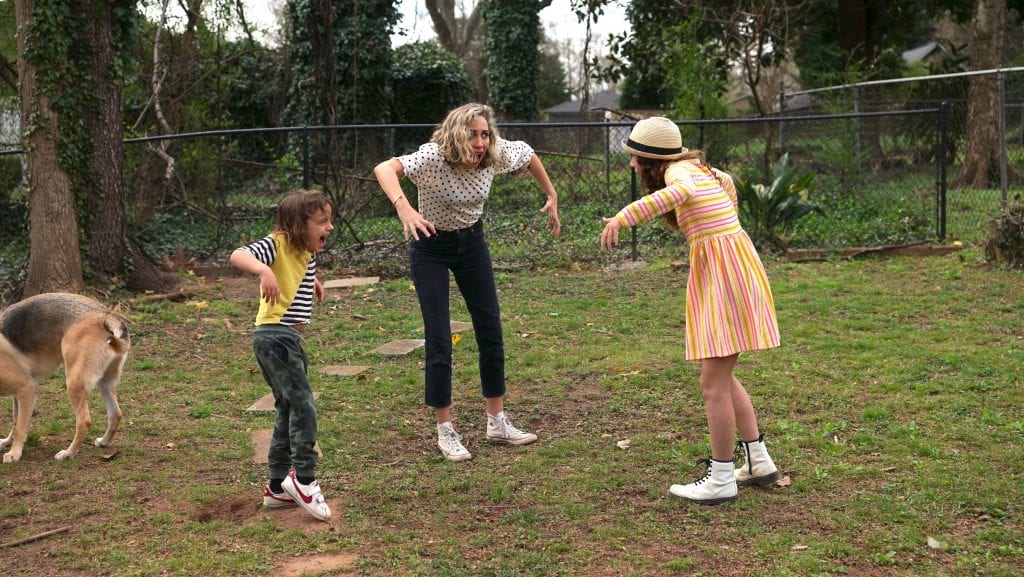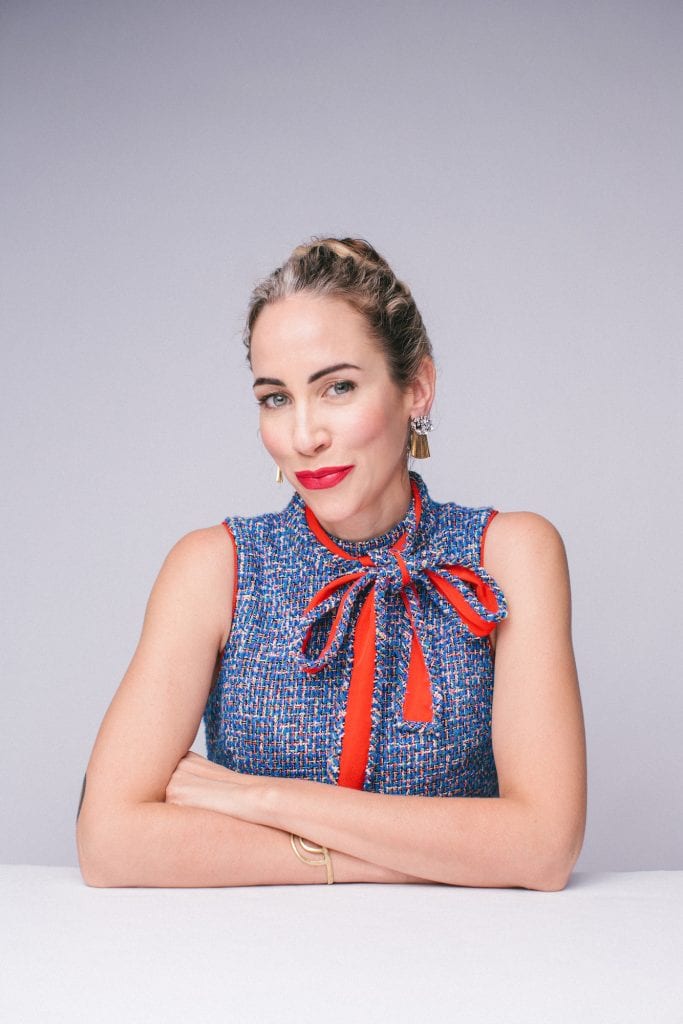About five months into the perpetual Groundhog Day of remote learning, my 11 year old ran into my office (bedroom) where I sat at my desk (on my bed) and interrupted my work (doomscrolling) to ask for a wig.
Let me explain. I have an extensive collection of wigs, ranging from glamorous to involved in a serious accident with a Hot Tool, because I am a comedian who performs characters ranging from glamorous to someone who was involved in…you get it.
Upon selecting a wig I call “The Gene Wilder,” my daughter ran back to school (her bedroom). Math class was about to begin, and on a whim or out of a sudden determination to combat the monotony of Zoom school, she logged on as young Dr. Frankenstein. Her teacher, whose unfailing patience and grace throughout this experience has been nothing short of heroic, allowed the subversion, making fractions infinitely more light, fresh and fun.

And it clicked in a larger way. For us to survive the pandemic on an emotional level, I knew I had to engage with my kids in a more light, fresh and fun way – for their sanity and mine. I had to follow my daughter’s lead – shake things up and stop taking this immeasurably serious situation so seriously. I have a book next to my “desk” called “The Comedy of Survival.” The author, Joseph Meeker, writes “Comedy promotes survival not merely as a continuation of existence, but also as an affirmation of life and joy despite the disasters that may occur.”
To find this affirmation of life and joy, I turned to the set of skills I have taught and used in performance for more than 10 years: improv. In improv, you stumble upon new perspectives, new ways of being and new forms of hilarity. Improv allows you to make new cognitive connections that become a part of your everyday life. It’s a practice of transforming the mundane into the extraordinary.
Improv is not about being funny. It’s really not! Even when I teach actors, I don’t teach them to “play funny.” Rather, I teach them to trust the comedy will come out of yes and-ing the ridiculous circumstances they have established. Applying the principles of improv to parenting is a way to model a playful attitude toward life, a point of view that allows you to laugh at yourself and the (often) absurd world we live in. The result is reduced anxiety, resilience, adaptability, confidence. Yes and…yes, please.
Another book in my “office” is “Play” by Stuart Brown. Like a Jedi Master of behavioral science, Brown writes “Often the problem isn’t the problem, it’s our reaction to the problem that’s the problem.” Amen. As adults, our reactions to situations are inconsistent. I often wonder how my kids process my erratic responses. Why is Mom calm and collected when she’s rear ended, but she acts like the house is on fire when we run out of chips? Because it offers a safe space for kids and parents to experiment with overreacting to minutia, improv is an exercise in catharsis.
Suddenly, the defenselessness I felt against the tension and anxiety growing in our house like toxic mold, not to mention the fresh hell unfolding daily outside of our house, seemed manageable. I reaffirmed that engaging in meaningful play with my kids would allow us to connect with each other, and in doing so connect to our humanity and our ability make each other feel joy and love. I gathered my family. I asked us all to look very hard at each other, and to mimic the smallest movements we noticed in each other’s faces. If someone made a sound, we mimicked that sound as well…we were improvising! In a short amount of time, things got very silly, and someone (me) laughed so hard they peed.
Lauren Burns is an actor, writer, teacher and founder of Fun Lab LA.

























